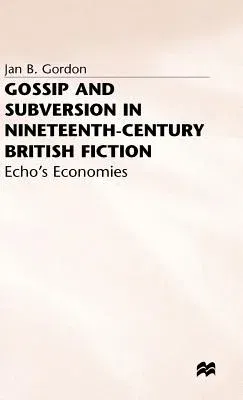J Gordon
(Author)Gossip+subversion in 19c Britain Fiction (1996)Hardcover - 1996, 27 November 1996

Qty
1
Turbo
Ships in 2 - 3 days
In Stock
Free Delivery
Cash on Delivery
15 Days
Free Returns
Secure Checkout

Print Length
444 pages
Language
English
Publisher
Palgrave MacMillan
Date Published
27 Nov 1996
ISBN-10
0333607821
ISBN-13
9780333607824
Description
Product Details
Author:
Book Edition:
1996
Book Format:
Hardcover
Country of Origin:
US
Date Published:
27 November 1996
Dimensions:
21.59 x
13.97 x
3.02 cm
Genre:
19th Century
ISBN-10:
0333607821
ISBN-13:
9780333607824
Language:
English
Location:
London
Pages:
444
Publisher:
Weight:
730.28 gm